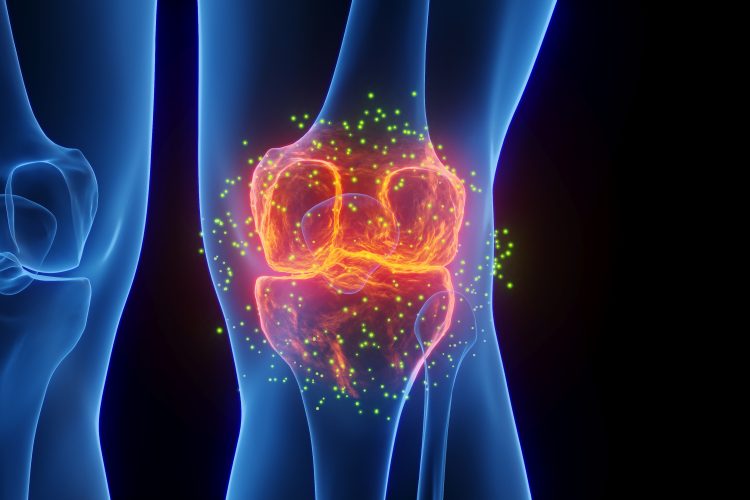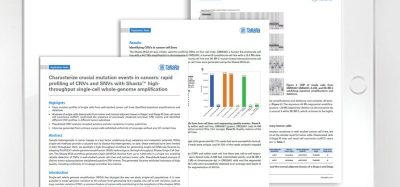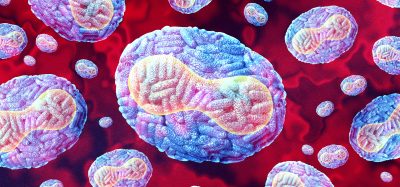New genetic discovery offers hope for arthritis drug development
Posted: 3 March 2025 | Drug Target Review | No comments yet
York University researchers have discovered a genetic mutation in the TRAF1 protein that dramatically reduces inflammation, offering a potential breakthrough in rheumatoid arthritis treatment.


In a significant scientific breakthrough, researchers at York University’s Faculty of Health have discovered a genetic mutation that could transform treatment approaches for rheumatoid arthritis and other inflammatory diseases. The study, led by Associate Professor Ali Abdul-Sater, reveals how a specific mutation in a protein called TRAF1 can dramatically reduce inflammation by halting an overactive immune response.
TRAF1’s role in immune regulation
Rheumatoid arthritis is a debilitating autoimmune disease affecting approximately one percent of the global population. It occurs when the body’s immune system mistakenly attacks healthy cells, leading to joint stiffness, swelling, and pain. Over time, this immune misfire can result in irreversible damage to joints, cartilage, and bone, significantly impacting patients’ quality of life.
“Rheumatoid arthritis is a common health condition which can interfere with many aspects of daily life and based on the limited efficacy of current treatments, novel approaches are needed,” says Abdul-Sater. “In this study, we have made a discovery that may pave the way for more effective treatments for rheumatoid arthritis and other inflammatory diseases.”
Biomarkers are redefining how precision therapies are discovered, validated and delivered.
This exclusive expert-led report reveals how leading teams are using biomarker science to drive faster insights, cleaner data and more targeted treatments – from discovery to diagnostics.
Inside the report:
- How leading organisations are reshaping strategy with biomarker-led approaches
- Better tools for real-time decision-making – turning complex data into faster insights
- Global standardisation and assay sensitivity – what it takes to scale across networks
Discover how biomarker science is addressing the biggest hurdles in drug discovery, translational research and precision medicine – access your free copy today
The study, published in the Journal of Autoimmunity, used advanced gene-editing technology to identify a critical mutation in the TRAF1 protein. This mutation, located at position valine 196 (V196), disrupts a key molecular interaction that typically drives the immune system into overdrive. By selectively blocking TRAF1’s interaction with another protein, the mutation effectively dampens a major inflammatory pathway responsible for sensing infection and tissue damage.


Rheumatoid arthritis is an autoimmune disease where the immune system mistakenly attacks the joints, causing pain, swelling, and long-term damage. Current treatments can lose effectiveness or have serious side effects, highlighting the need for safer, more targeted therapies.
Potential for a new class of drugs
“TRAF1 plays a central role in immune signalling and is known for its dual roles: it helps amplify inflammatory signalling in some contexts while also acting as a brake to limit overactive responses,” explains Abdul-Sater. “These opposing roles have made TRAF1 a challenging target for therapeutic intervention – until now.”
The researchers observed that mice with the TRAF1 mutation exhibited significantly less inflammation and swelling compared to normal mice. Remarkably, these mice were also protected from sepsis, a severe condition caused by an overwhelming immune response to infection. This discovery points to the broader therapeutic potential of targeting TRAF1 in a range of inflammatory diseases.
TRAF1 plays a central role in immune signalling and is known for its dual roles: it helps amplify inflammatory signalling in some contexts while also acting as a brake to limit overactive responses.
Current treatments for rheumatoid arthritis include broad immunosuppressants, such as steroids, and biologics that inhibit specific cytokines. However, these treatments often lose effectiveness over time and can increase the risk of cancer, infections, and other adverse effects. The discovery of the TRAF1 mutation offers a more targeted approach, potentially reducing these risks while offering a long-lasting therapeutic effect.
“Such therapies could not only alleviate symptoms but also address the underlying mechanisms of inflammation, benefiting patients who do not respond to existing options,” Abdul-Sater adds.
Hope on the horizon
The findings could lead to the development of a new class of drugs that not only manage symptoms but also address the root cause of inflammation. This innovation could provide a much-needed alternative for patients who have not found relief with existing therapies.
As the research moves forward, the York University team is optimistic about translating these findings into clinical treatments. Their work highlights the potential of genetic research to transform therapeutic strategies and improve the lives of millions affected by autoimmune and inflammatory diseases.
This study was published in the Journal of Autoimmunity.
Related topics
Cytokines, Disease Research, Drug Discovery, Drug Discovery Processes, Genetic Analysis, Genome Editing, Genomics
Related conditions
rheumatoid arthritis
Related organisations
York University
Related people
Associate Professor Ali Abdul-Sater








